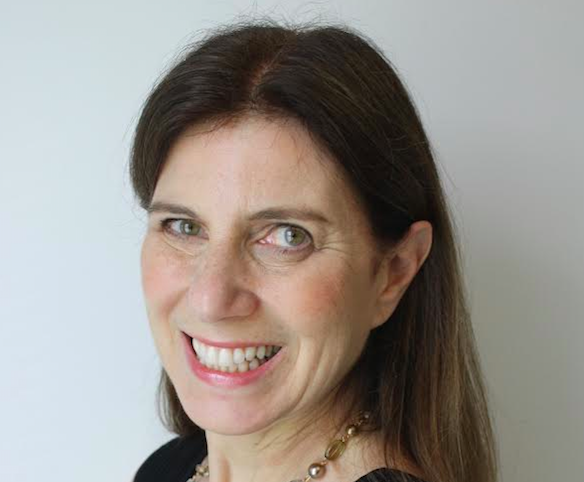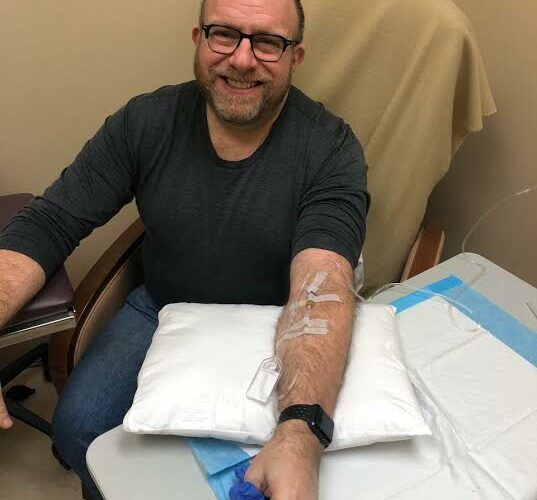Last week, Biogen announced that its Alzheimer’s drug aducanumab was effective in combating Alzheimer’s disease, and that it would be reviving a trial cancelled earlier this year. However, questions still remain about what’s next for patients and doctors as the drug moves toward FDA approval.
- In March of 2019, Biogen cancelled it’s Phase 3 trial of Alzheimer’s drug aducanumab following a failed futility analysis
- Biogen recently announced the revival of their trial, indicating that new data supported the drug’s effectiveness
Being Patient spoke with Dr. Sharon Cohen, Medical Director and Principal Investigator at the Toronto Memory Program, about her view of the revived program, aducanumab’s potential and the future of Alzheimer’s drug research.
How Does Aducanumab Work?
Being Patient: We’ve talked to people about aducanumab who’ve been in the trial and felt like it was helping them. What does the drug actually do to combat Alzheimer’s?
Dr. Sharon Cohen: Aducanumab is an antibody, and we give it by an intravenous infusion. What this antibody does is get into the brain, and it binds to a toxic protein called amyloid. Amyloid is a necessary part of the development of Alzheimer’s: It’s bad for brain cells, it harms them, it triggers the development of proteins like tau.
And whether or not amyloid is the very first step, it’s definitely a very early step, so even people who have very mild cognitive impairment and are still functioning very well will have quite a bit of amyloid in the brain. Aducanumab draws amyloid out, and we know it does that. The phase 3 study wasn’t to test whether we could draw amyloid out, but to see whether we could slow down the disease in people who were having amyloid removed.
We call that kind of drug a disease-modifying drug, as opposed to a drug that just treats symptoms. So if you have a brain tumor giving you a headache and you take Tylenol, it’ll treat the symptom, but you’re going to need something more substantial than something that just treats the symptoms in order to get rid of the tumor. So for Alzheimer’s, we need to slow down or finally be able to reverse the disease.
Being Patient: It’s my understanding that PET scans and other scans can show the presence of plaque on the brain, but we don’t fully know how much plaque is too much or what happens if we remove all plaque. Is that true?
Dr. Sharon Cohen: Aducanumab was the first drug that was shown to be able to completely remove all plaque that is seen on a PET scan. Not all amyloid is in plaque form. There can be amyloid molecules dissolved in the brain that haven’t come out in plaque, so the PET scan only shows the plaque form of amyloid. But what aducanumab does is not just clear plaque out, but clears these other, earlier forms of amyloid that might be even more toxic to the brain.
So you’re right, we don’t know how early or how much amyloid we need to remove from the brain — but with a drug like aducanumab that can substantially remove amyloid, if amyloid really is driving the disease, the Phase 3 experiment is to say okay, with a drug to clear it, are people doing better with less amyloid in the brain?
Being Patient: If a drug like aducanumab can remove these plaques, can we take it as a prevention?
Dr. Sharon Cohen: That would be the next step. If we are satisfied with the Phase 3 studies now that we have the full data set, if we see that the disease is slowed by amyloid clearing and tau is also lessened, then the next study would be a prevention study where we take healthy people who maybe have the beginnings of amyloid or maybe no amyloid, and try to keep them healthy. That study hasn’t been done, but it might be the next step.
What Happened With The Phase 3 Trial?
Being Patient: Sharon, you were conducting the Phase 3 trial before it was cancelled. Did you see signs that the drug was working in your patients?
Dr. Sharon Cohen: We thought our patients were doing well overall, and our patients were happy. We are just one site out of some 20 sites around the world, so we had a small sample size and didn’t want to overcall our anecdotal experience. But yes, we were encouraged by people who thought they were doing well.
When people had to come off the drug when the trial was cancelled, it was a shock to everybody because the drug’s safety was acceptable, we thought we were doing well, and the scientific community really thought that this might be the drug to cross the finish line. So that was disappointing. And then when the larger data set was announced and the drug seemed to be helpful, all of our patients we contacted said we want to come back, we want to go back on the drug. So that’s a testament to how people felt they were doing.
Being Patient: So why was it deemed that the data wasn’t trustworthy and therefore the phase 3 trial was cancelled, and what did this new set of data tell us that gave a reason to relaunch the trial?
Dr. Sharon Cohen: That was baffling to many. In the phase 3 study, there was a built-in futility analysis, which is a usual way of running a trial. At some interim point before the completion of a trial, you have some committee look at the data and say, “What’s the likelihood that if we run this study to completion, that the results will be positive?”
If the chance that the study is going to be positive is estimated to be low, then a sponsor like Biogen might say that it’s not worth the investment, it’s not worth it for patients to keep them in a study where there’s a low chance of success. And futility analyses can be right, or they can be wrong. They’re a guess at what the final data may show. The Biogen futility analysis was conducted on just 50% of the data, and there were then amendments to the protocol that really changed what the final data looked like.
As the phase 3 study progressed, there were more and more data indicating that the study was positive, that the study was meeting all of its outcome measures. Amyloid was reducing, tau was doing better, patients were functioning better than those in the placebo group. So it was a clearly positive study that the futility analysis failed to predict.
The Future for Aducanumab and Trial Participants
Being Patient: So what does this mean now for people who were taken off the previous study, and for people who want to get into the trial? How long will they have to wait?
Dr. Sharon Cohen: People who have already participated will be invited back; we’re hoping around February individuals will be able to come back. Whether or not they were on the active drug or the placebo, and whether or not they stayed stable or declined in the disease since being taken off the drug, they will all be able to go into what we call an open label extension, receiving the active drug aducanumab with no chance of placebo.
For the rest who have not been a part of the aducanumab studies, we’re thinking that the FDA will give a fast tracks review of the aducanumab submission, which would mean about seven months of mulling over documents and making a submission. If Biogen submits to the health regulators in early 2020, which they’ve said they’re planning to do, then we’re looking at the fall of 2020 for new participants to join. So that comes around pretty quickly, but obviously not fast enough for those of us who are eager to have access to the drug.
Being Patient: If this is proven effective, what would it mean for the future of research for a cure?
Dr. Sharon Cohen: It would be a game changer. Not because it itself is a cure, but because it would be the start of disease-modifying treatments for Alzheimer’s. It would be the first. And we know that once we get a foothold like that, we can get a second and a third disease-modifying drug. Drugs start to build on each other and become a little bit better, a little bit safer. It gives us an opportunity to build a drug cocktail that we’re going to need to defeat a complicated disease like Alzheimer’s.









This article is excellent and you have done a great job getting your point across in this content.